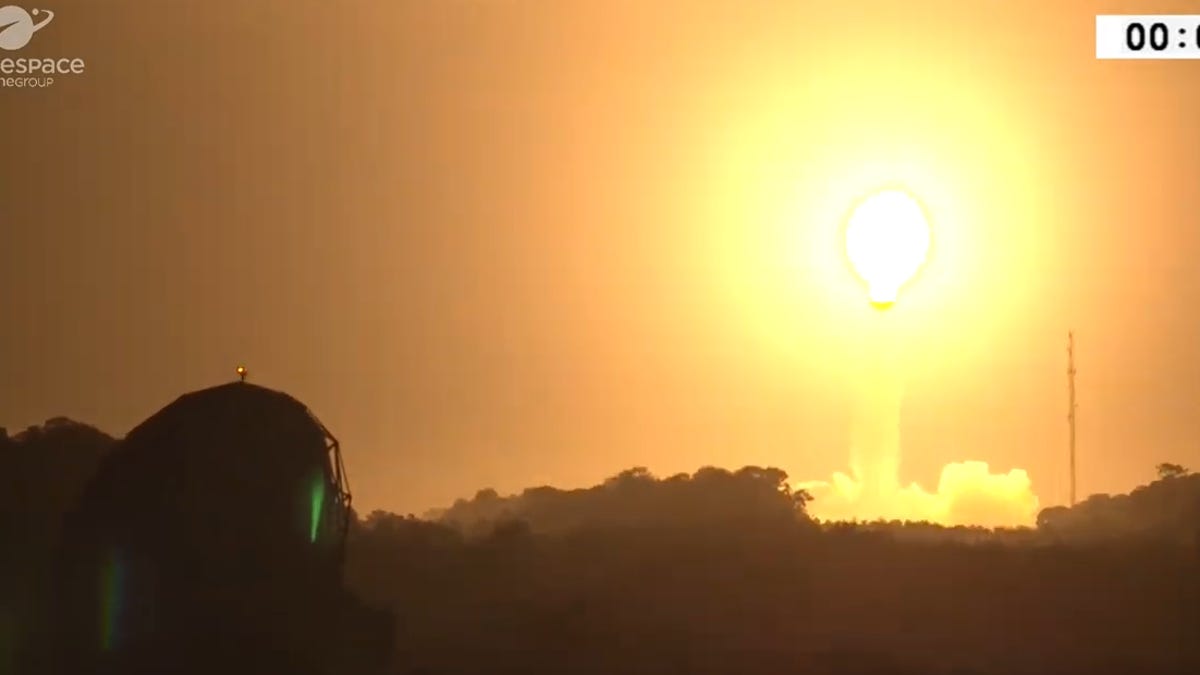Arianespace's Vega rocket lost due to 'major anomaly' during launch
Two minutes after launch the rocket began to veer off-course before falling into the Atlantic Ocean.

Launching the Vega on July 10.
Arianespace, a commercial rocket launch provider operating out of France, has confirmed loss of the Vega rocket shortly after launch of the VV15 mission. The mission was carrying the United Arab Emirates' FalconEye1 communications satellite. Around two minutes after launch, the rocket experienced an anomaly and deviated from its course.
"A major anomaly occurred, resulting in the loss of the mission," said Luce Fabreguettes, executive vice president of missions, operations and purchasing. "On behalf of Arianespace, I wish to express my deepest apologies to our customers for the loss of their payload and telling them how sorry I am."
The Vega rocket launched from Guiana Space Center in Kourou, French Guiana on its 15th mission since 2012. It was also the second flight of the rocket this year. The mission was delayed twice after unfavorable weather conditions forced Arianespace to scrub launch.
Launch occurred at 6:53 p.m. PT, and the telemetry data was lost just two minutes later. According to Fabreguettes, the anomaly occurred during second stage ignition. During the livestream, the DDO -- the launch director -- called out separation of the first stage and ignition of the second stage approximately 2 minutes and 10 seconds after launch, but the vision did not appear to show ignition.
The rocket's first stage disappears from view.
"From the first flight data analysis we will get in the coming hours more precise information and we will communicate to everybody at the soonest," said Fabreguettes during a livestream of the launch.
It's been something of a huge day in space news, with NASA announcing the demotion of their head of human space exploration directorate and Japan's Hayabusa2 spacecraft completing a daring touchdown on the surface of an asteroid 150 million miles from Earth.

